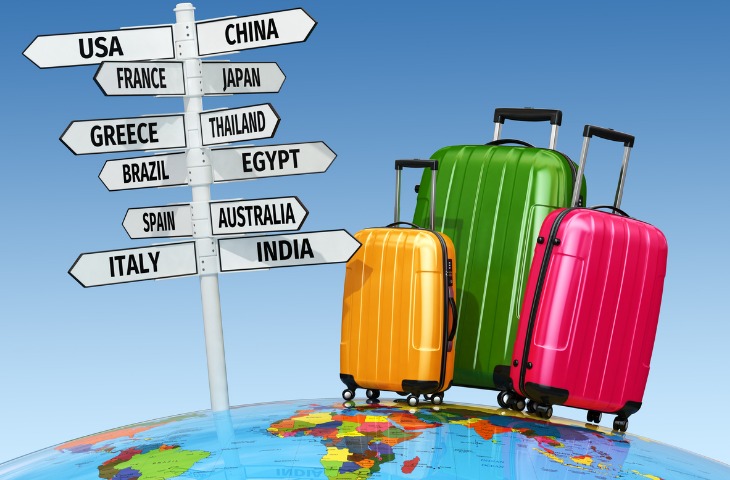What You Need to Know Before Going Abroad: The Ultimate 2026 Guide
Traveling abroad is exciting, life-changing, and sometimes a little overwhelming. Whether you’re planning a short vacation, studying overseas, or moving for work, knowing what you need to know before going abroad can make your journey smoother, safer, and more memorable. In 2026, travel has become more accessible than ever, but it also comes with new considerations—technological, cultural, and logistical. This guide will walk you through everything you should know before stepping onto that plane.

1. Planning Your Trip: The Foundation of Stress-Free Travel
Before going abroad, careful planning is essential. Here’s what to focus on:
a. Choosing the Right Destination
- Purpose of travel: Are you going for leisure, work, study, or adventure? Your destination should align with your goals.
- Climate and season: Check the best time to visit to avoid extreme weather or peak tourist congestion.
- Local laws and regulations: Some countries have strict rules about dress codes, alcohol consumption, or photography in public areas.
b. Budgeting for Your Trip
- Flights: Use price comparison tools and flexible dates to save money.
- Accommodation: Consider hostels, vacation rentals, or boutique hotels.
- Food and transport: Research average costs per day for a realistic budget.
- Emergency fund: Always set aside at least 10–20% of your total budget for unforeseen events.
c. Creating an Itinerary
- Plan a balance between must-see attractions and flexible downtime.
- Consider travel time between cities or countries to avoid exhausting schedules.
- Leave room for spontaneous adventures—it’s often the most memorable part of travel.
2. Travel Documents and Visa Requirements
Knowing the necessary paperwork is crucial before going abroad.
a. Passport
- Ensure your passport is valid for at least six months beyond your intended stay.
- Check for blank pages required for visas and entry stamps.
- Make digital copies and store them securely online.
b. Visa Requirements
- Some countries allow visa-free entry; others require pre-approval.
- Understand the types of visas: tourist, student, work, and digital nomad visas.
- Apply early and follow official embassy guidelines to avoid delays.
c. Other Important Documents
- Travel insurance proof and health certificates.
- Flight tickets and accommodation bookings.
- Emergency contacts, both local and from your home country.
3. Health and Safety Considerations
Staying safe and healthy is a top priority before going abroad.
a. Vaccinations and Medical Preparation
- Research required and recommended vaccinations for your destination.
- Carry a basic travel health kit including medications for common issues (headache, stomach upset, allergies).
- Check local healthcare quality and costs; consider travel insurance with medical coverage.
b. Personal Safety
- Research the crime rate and common scams in your destination.
- Avoid unsafe neighborhoods, especially at night.
- Keep your valuables secure; consider using money belts or travel-friendly wallets.
4. Accommodation and Transportation
a. Finding the Right Accommodation
- Research options that match your budget, location preference, and safety.
- Read recent reviews to understand the real experiences of past guests.
- Consider amenities like Wi-Fi, laundry, and kitchen access if staying long-term.
b. Getting Around Abroad
- Learn about public transportation systems; many countries offer travel cards or apps for buses, trains, and metros.
- Ridesharing apps like Uber or Lyft are available in many cities.
- Walking and cycling can be safe and healthy options in urban areas.
5. Financial Planning
Money management is crucial before going abroad.
- Open an international bank account or use a travel-friendly bank card.
- Notify your bank of your travel plans to avoid card freezes.
- Keep multiple forms of payment: cash in local currency, credit/debit cards, and digital wallets.
- Understand local tipping customs to avoid awkward situations.

6. Cultural Preparation
Understanding the culture of your destination makes your trip more enjoyable and respectful.
a. Language
- Learn basic phrases for greetings, directions, and emergencies.
- Use translation apps for complex conversations.
b. Customs and Etiquette
- Research local traditions, gestures, and acceptable behaviors.
- Dress codes may vary, especially in religious or formal settings.
- Respect local laws and avoid activities that are illegal in your host country.
c. Social Norms
- Observe how locals interact in public spaces.
- Be mindful of noise levels, personal space, and queue etiquette.
7. Technology and Travel Essentials
Technology can make your trip abroad more convenient:
- Travel apps: Navigation, translation, itinerary planning, and currency conversion.
- Connectivity: Consider international SIM cards or portable Wi-Fi devices.
- Safety apps: Share your location with family and friends; have emergency numbers saved.
- Digital backups: Store copies of your passport, tickets, and travel insurance online.
8. Packing Smart
Packing efficiently is key before going abroad:
- Clothing: Pack versatile items that can be layered for different climates.
- Electronics: Chargers, adapters, and portable batteries are essential.
- Health and hygiene: Travel-size toiletries, masks, and hand sanitizers.
- Travel documents: Keep all papers organized in a travel wallet.
9. Travel Etiquette and Responsible Tourism
Being a respectful traveler enhances your experience and helps the environment:
- Avoid littering and reduce single-use plastics.
- Support local businesses and artisans.
- Learn about environmentally sensitive areas and follow guidelines.
- Respect wildlife and protected areas.

10. Emergency Preparedness
Even with careful planning, emergencies can happen:
- Know the local emergency numbers for police, fire, and medical services.
- Have travel insurance that covers accidents, theft, and health emergencies.
- Keep a list of your country’s embassy or consulate in your destination.
- Have a backup plan for accommodation or travel cancellations.
11. Mental Preparation
Traveling abroad can be exciting but also stressful:
- Prepare for culture shock and homesickness.
- Set realistic expectations; not every day will be perfect.
- Stay flexible—unexpected situations often lead to the best stories.
- Keep a journal or digital diary to document your experiences.
12. Final Thoughts
Knowing what you need to know before going abroad ensures a smooth, safe, and memorable trip. From planning and finances to cultural etiquette and emergency preparedness, every detail matters. Traveling internationally isn’t just about seeing new places; it’s about experiencing new cultures, meeting new people, and growing as a person.
By following these tips, your journey abroad in 2026 can be not only hassle-free but transformative, leaving you with memories and skills that last a lifetime.